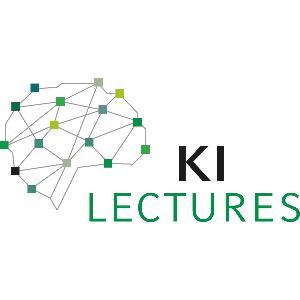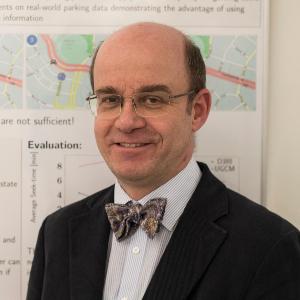Artificial Intelligence – A look towards future developments
31 Jan 2022
On February 8, Professor Thomas Seidl will be giving a talk on current developments and challenges in the application of AI as part of the “KI Lectures” series.
31 Jan 2022
On February 8, Professor Thomas Seidl will be giving a talk on current developments and challenges in the application of AI as part of the “KI Lectures” series.

Artificial intelligence applications have led to impressive advances in all areas of science and society. Researchers are constantly working on further improvements. As part of LMU’s “KI Lectures” series, Thomas Seidl, Professor of Computer Science at LMU and Director of the Munich Center for Machine Learning, will be talking about current developments and challenges in the application of AI methods.
In his lecture, he will be discussing selected practical issues relating to machine learning, in particular the preparation and analysis of the data required for automated learning. He will be sharing insights into research at the Munich Center for Machine Learning and looking at the methodological foundations and the development of new technologies in image and speech recognition.
Prof. Dr. Thomas Seidl
Artificial Intelligence – A look towards future developments
Tuesday, February 8, 2022
6:15-7:45 p.m.

In your view, what are the most important developments currently in AI? What have learning machines learned to date?
Thomas Seidl: There has been great progress in areas such as knowledge representation – that is, the question as to how knowledge can be represented on computers so that they can make solid predictions and draw valid inferences. In numerous fields of application, people have achieved a lot with learning machines. There are good examples in the domains of language processing and computer vision, where machines are capable of recognizing emotions and feelings when analyzing messages and of recognizing and understanding complex scenes in images, such as pedestrians in road traffic situations. Far from just celebrating the impressive successes that are being achieved with machine learning, current methodological research is working on the robustness, reliability, and explainability of the methods, and therefore on their acceptance for use in science, technology, and society.
Have we discovered enough yet about how machines learn to make AI applications effective, safe, and reliable in domains such as image and voice recognition? Where do the challenges lie?
Thomas Seidl: Our awareness of the fallibility of current approaches is actually quite acute when it comes to things like the scope for confusion when recognizing road signs. Researchers are constantly working on the foundations to achieve deeper understanding and bring about further improvements. Furthermore, neural networks are very well understood as regards how they work at the fundamental mathematical level. That being said, it’s still a challenge when training artificial neural networks to capture how changes in training data or system parameters affect the quality of the results. In general, the quality of results depends very strongly on the availability and quality of suitable data. In many applications, it’s very costly and difficult to acquire good data with well curated annotations. This is the reason for the cultivation of techniques such as “few labels learning” and “active learning,” which seek to extract maximum utility from data.
In which areas of AI do you anticipate the biggest progress in future?
Thomas Seidl: That’s a difficult question, because AI is developing and improving in very many directions. As regards applications, I expect there will be further adaptations that take AI into new domains which it has not yet reached. Other important topics in the future will be more efficient calculations – both in terms of the economical use of data and of energy consumption – and greater explainability of data processing and decision-making processes. What direction the latter could take is currently unclear – big progress can also occur disruptively, i.e. completely new technologies could arise to replace previous solutions.
Prof. Dr. Thomas Seidl is Professor of Computer Science. He is Chair of Database Systems and Data Mining at LMU’s Faculty of Mathematics, Informatics and Statistics and Director of the Munich Center for Machine Learning.
More information on the KI Lectures series